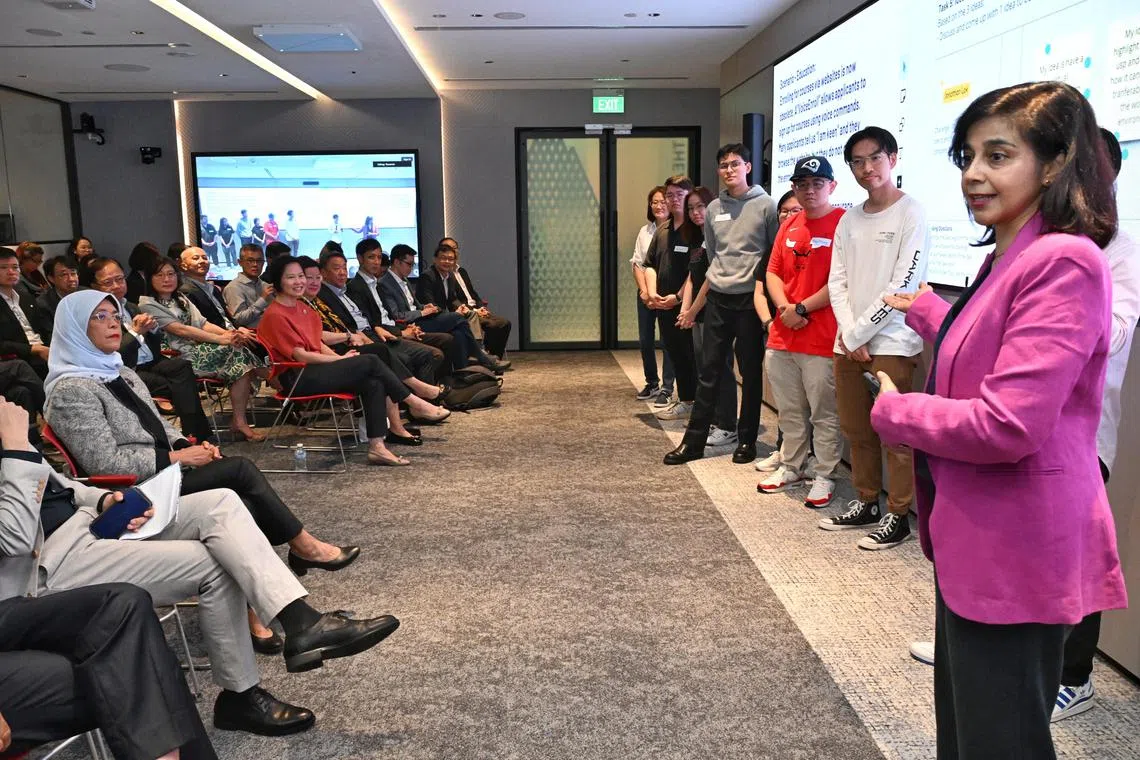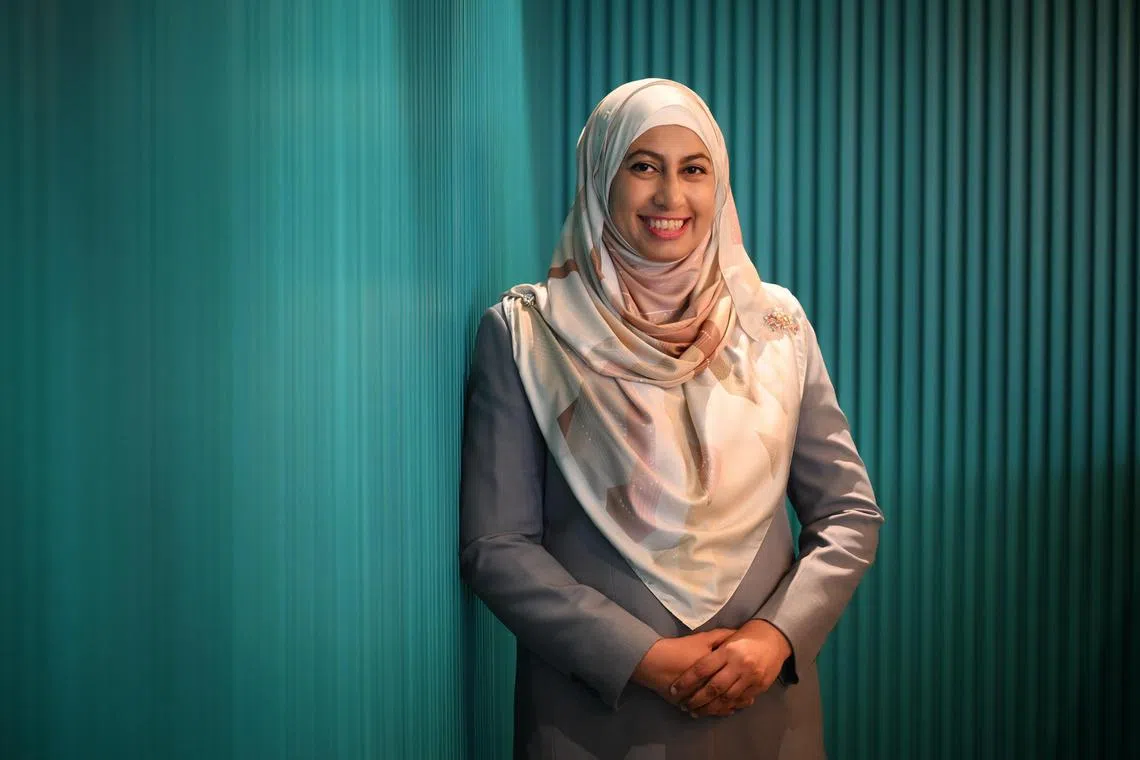New space launched in S’pore to experiment with teaching and learning practices for adults
Sign up now: Get ST's newsletters delivered to your inbox

Dr Parveen Sandhu (right), principal specialist at the Adult Learning Collaboratory (ALC), giving a presentation on a collaboration between the ALC and Singapore Polytechnic. Among those in attendance are former president Halimah Yacob and Minister of State for Education Gan Siow Huang.
ST PHOTO: CHONG JUN LIANG
SINGAPORE - Equipped with five cameras and audio recording devices, a new “classroom” aims to be a place where educators and companies can experiment with methods to help adults learn better.
Housed within the Lifelong Learning Institute in Paya Lebar, the Adult Learning Collaboratory features a small theatre meant for experiments, and a functional near-infrared spectroscopy (fNIRS) equipment which can monitor brain activity.
The fNIRS equipment monitors brain activity through sensors on head caps which are worn by adult learners during a lesson. The device uses non-invasive neuroimaging technology to record changes in the outer layers of the brain.
The data provided can show if the adult learners were effectively working together, being creative, or even experiencing stress by looking at the activity levels across different parts of the brain.
These are among the possibilities available to educators in innovating and devising teaching and learning methods for adult learners, thanks to a newly opened adult learning hub.
The Adult Learning Collaboratory, an initiative by the Institute for Adult Learning (IAL), was officially launched on Aug 1 in partnership with SkillsFuture Singapore (SSG).
The space aims to provide opportunities for enterprises, adult educators and learners
Dr Sahara Sadik, who heads the Adult Learning Collaboratory, said the cameras and recording devices in the experimental theatrette can be used to process interactions during a lesson.
The information can then be analysed to determine how effective the facilitator was at teaching, and whether the lesson was engaging for the learner.
The data can show how often the facilitator used techniques like reflective questioning and open-ended questions to make learners think, as well as how often learners answered questions and participated in discussions.
Dr Sahara, who is also the deputy director of IAL’s research division, said that since the fNIRS equipment requires minimal set-up time and allows participants to move around freely, it is optimal for neuroscience experiments in real-world settings, including workplaces.
“These technologies are available right now. The main thing is that it’s never been used in real life settings extensively, which is what the collaboratory is trying to do. We are bringing these techniques into the real world.”

Dr Sahara Sadik said the cameras and recording devices in the experimental theatrette can process interactions during a lesson.
ST PHOTO: CHONG JUN LIANG
According to an IAL spokeswoman, the Adult Learning Collaboratory is the first of its kind to address adult learning challenges in Singapore.
The IAL was established in 2008 to drive research and innovation, as well as raise the standards of adult education in Singapore. It also celebrated its fifth anniversary as an autonomous institute of the Singapore University of Social Sciences at the opening event of the Adult Learning Collaboratory on Aug 1.
The adult learning landscape here evolved further when the SkillsFuture initiative was introduced in 2015 as part of a national movement to build a culture of skills development and lifelong learning among adults.
New teaching and learning approaches are being trialled at the Adult Learning Collaboratory for adult learners like digital marketers, junior lawyers and new hawkers.
The space is also looking at equipping older learners with skills such as anticipating trends, digital literacy, harnessing artificial intelligence and market analysis.
More than 20 partners, including Singapore Polytechnic’s School of Business, Fei Siong Group and the Singapore Academy of Law, are tapping IAL’s research in jobs, skills and learning to come up with teaching and learning solutions for adult learners.
Chief executive of SSG and chairman of IAL, Mr Tan Kok Yam, said that equipping adult learners goes beyond training, and involves research to understand the complexities of learning among adults.
“This includes studying how different pedagogies, personal motivation, job design, and technology, impact learning outcomes,” said Mr Tan.



